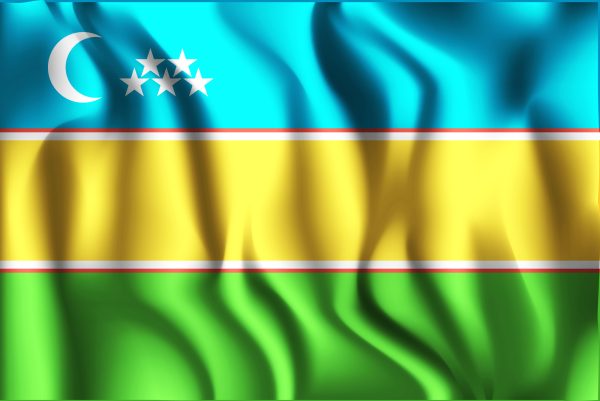Crossroads Asia | Politics | Central Asia
Tazhimuratov’s 16-year sentence was upheld while terms of others were either reduced or shifted to house arrest.
Uzbekistan’s Supreme Court has issued its rulings in the appeals of 16 people sentenced in January to various prison terms for their involvement in protests in Karakalpakstan last summer, as well as ruling on a request from prosecutors to reconsider four others originally given house arrest terms.
On Twitter, Kazakhstan-based Karakalpak activist Aqylbek Muratbai chronicled the rulings, noting that eight people initially given between three and eight year prison sentences saw those terms replaced with house arrest — they were released after the reading of the ruling. Six others had their sentences reduced.
However, a lawyer and journalist framed by Uzbek authorities as the mastermind of the protests was not granted any reprieve. Dauletmurat Tazhimuratov’s 16-year sentence stands.
During the appeal, Tazhimuratov’s lawyer, Sergei Mayorov, said, “This trial aims to instill fear among the citizens of Uzbekistan, to deprive our people of freedom of speech. My client was not afraid and is not afraid to tell the truth, and that is why I believe this trial is political.”
Diplomat Brief
Weekly Newsletter
N
Get briefed on the story of the week, and developing stories to watch across the Asia-Pacific.
Get the Newsletter
Tazhimuratov alone maintained his innocence; other defendants expressed contrition and pleaded for mercy from the court.
Four defendants — including another journalist, Lolagul Kallykhanova — who were convicted in January but released to house arrest had their sentences upheld by the Supreme Court, denying prosecutors request that they be jailed.
The sentence of the late Polat Shamshetov — six years — was also canceled. Shamshetov was sentenced on January 31 but died in police custody a week later.
Shamshetov, prior to his arrest in July 2022, had been the chief of Karakalpakstan’s Interior Ministry’s detective unit. He was the son of Karakalpakstan’s only president, Dauletbai Shamshetov, who led the autonomous republic after the collapse of the Soviet Union in 1991 until 1992 when the position was eliminated by Tashkent.
Advertisement
The authorities claimed Shamshetov’s death was the result of a “pulmonary embolism” and “acute heart failure,” but activists believe he died as a result of torture. In December, amid the trial, Tazhimuratov claimed he had been beaten and tortured in pre-trial detention in Nukus.
The unrest in July 2022 that rocked Nukus, Karakalpakstan’s capital, led to the deaths of at least 21 people; activists say the death toll was much higher. Triggered by the release of a draft constitution that erased Karakalpakstan’s autonomy, the resulting protests were the largest seen in the region in recent memory.
Sixty-one people have been put on trial for charges related to the July 2022 unrest in two separate trials (22 in the first, 39 in the second), but to date there has been little action taken against law enforcement arguably responsible for the deaths during the protests. In February Uzbek authorities said three members of law enforcement had been detained on unspecified charges. There has not been an update on whether the officers will be put on trial.
In November 2022, Human Rights Watch said that Uzbek security forces “unjustifiably used lethal force and other excessive responses to disperse mainly peaceful demonstrators on July 1 and 2, 2022 in Karakalpakstan…”
Uzbek courts have also sentenced, in absentia, two activists — Norway-based Aman Sagidullayev and Kazakhstan-based Neitbay Urazbayev — to lengthy prison terms. And a handful of Karakalpak activists (all of which are Uzbek citizens) have been detained in Kazakhstan, ostensibly facing possible deportation back to Uzbekistan to face charges.
